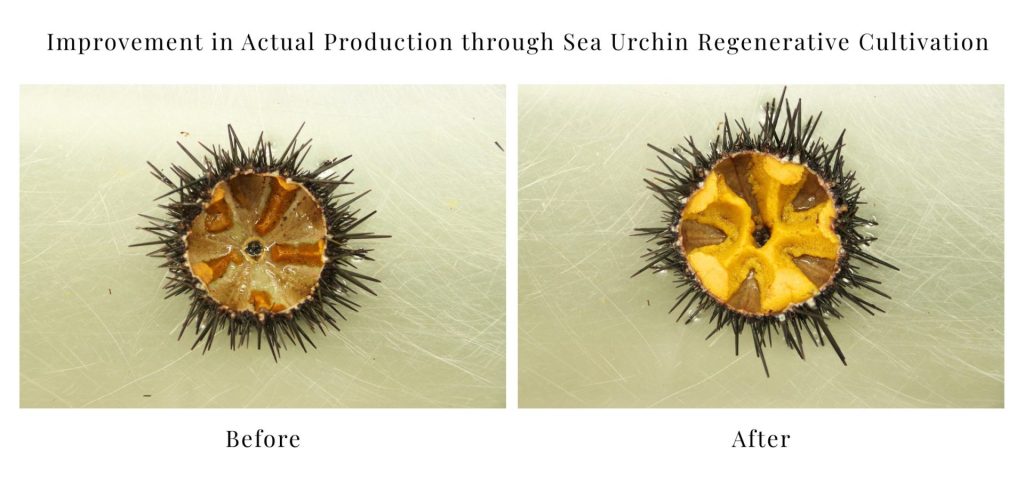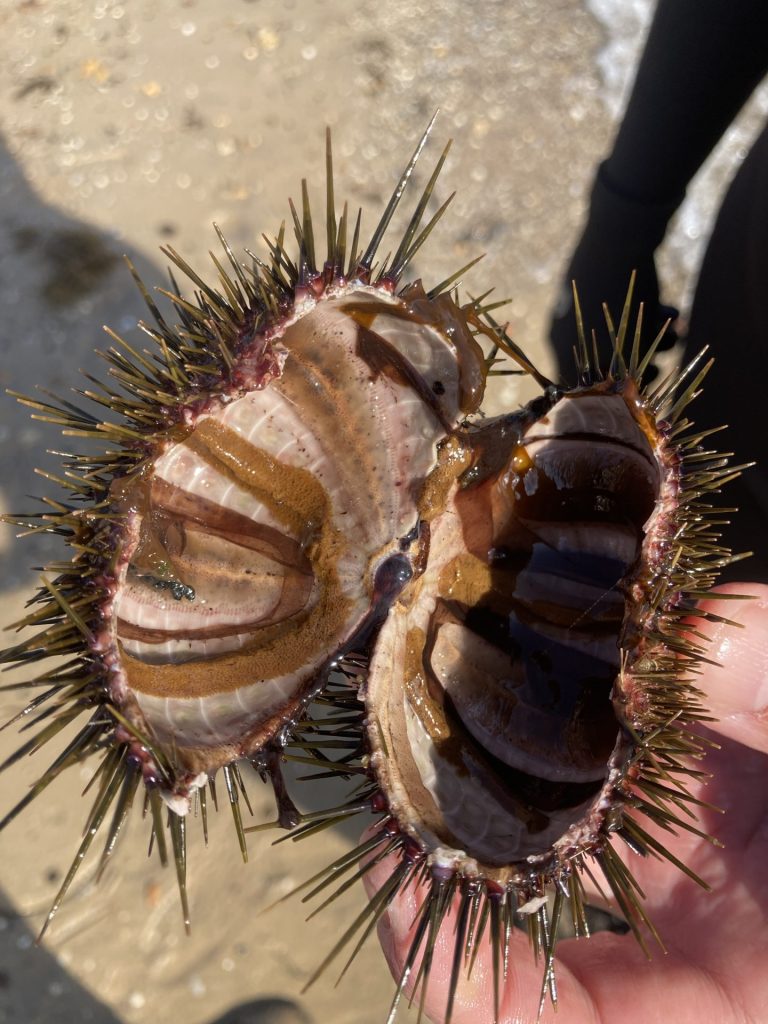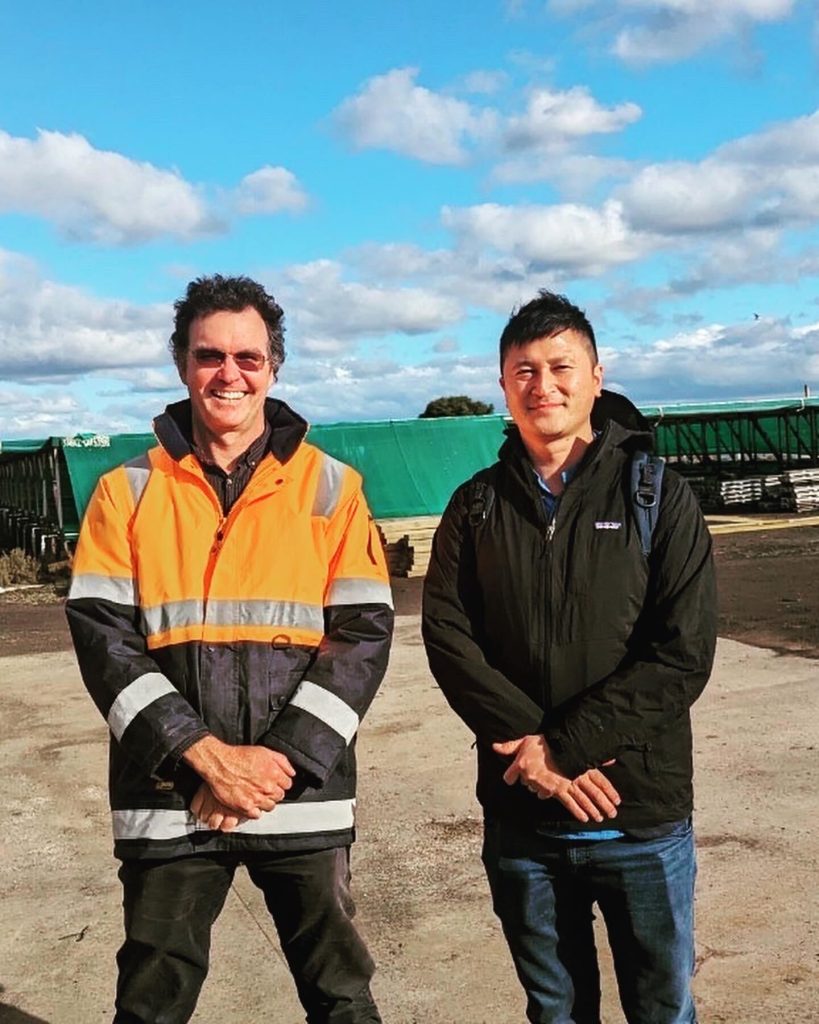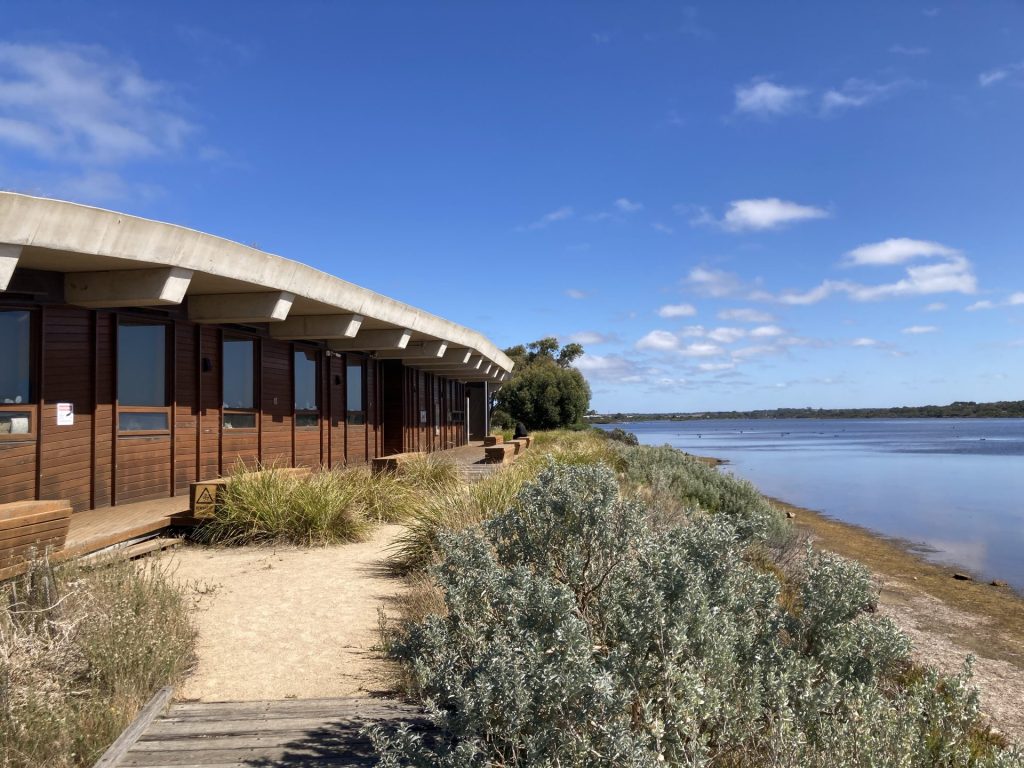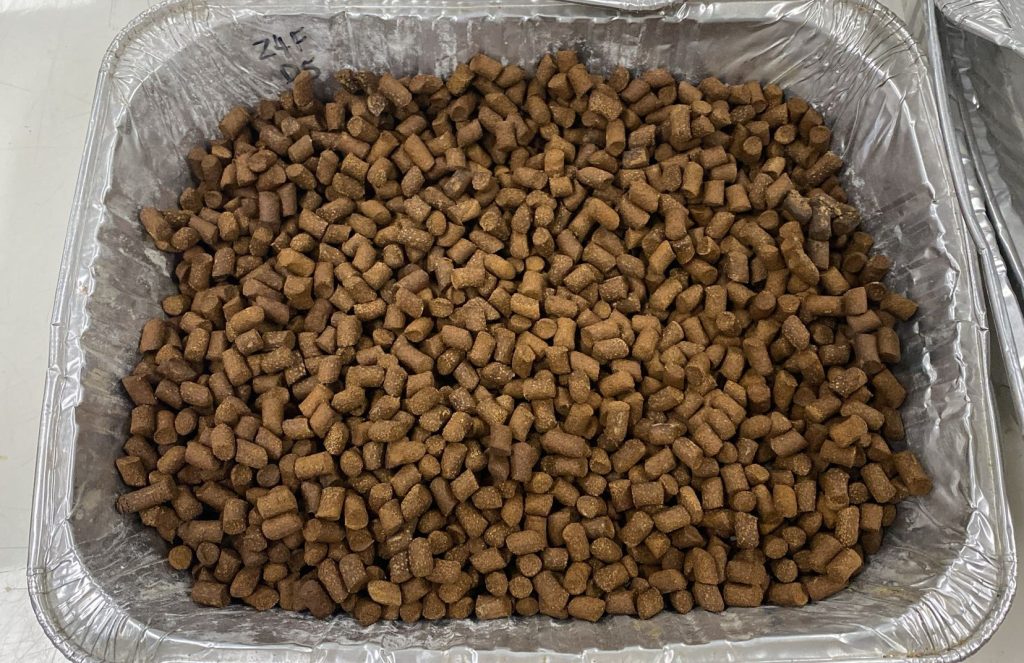In April 2025, 7-Eleven stores across Aomori and Miyagi prefectures offered a limited-edition Uni Miso Onigiri made with premium steamed sea urchin from Kita-Sanriku Factory Ltd..
Kita-Sanriku Factory is tackling the issue of “Isoyake”—the degradation of coastal marine ecosystems—through its regenerative aquaculture technology for sea urchins. Its sustainably farmed sea urchin was selected as the key ingredient for the miso blend used in the new onigiri developed in partnership with Seven-Eleven Japan Co. The product was available at approximately 100 Seven-Eleven stores in Aomori and Miyagi prefectures (as of February 2025) for a limited time from 1st April 2025. By increasing the consumption of sea urchin which is one of the causes of “Iso-yake”, we can help restore seaweed-rich coastal ecosystems.
“Sea Urchin Miso Onigiri,” A Taste of Sanriku that burts with flavor
This product uses Northern Sea Urchin carefully cultivated by fishermen in the town of Hirono, Iwate prefecture. Juvenile urchins are released into the sea and later transferred to a coastal Sea Urchin Ranch®, where they are fed a rich diet of kelp. Once matured, the sea urchins are steamed to concentrate their umami flavor. The resulting “steamed sea urchin” is then combined with Sendai miso, a rice miso that has been aged for a long time, to create the perfect combination of salty, sweet, and savory flavors. Wrapped in rice from the Tohoku region, this onigiri offers a delicious way to “taste Tohoku” and enjoy the essence of the Sanriku seashore in every bite.
Product name: “Uni (sea urchin) miso rice ball using steamed sea urchin from Hirono Town”
Price: 320 yen (345.6 yen including tax)
Eating is the Answer to “Iso-yake”s. Initiatives to Enrich the World’s Oceans
In recent years, “Iso-yake,” or the drying up of coastal seaweed beds where marine plants once thrived, has become a serious problem. One of the causes is overgrazing by marine organisms such as sea urchins, which consume all the seaweed.In areas where these seaweed beds have already disappeared, the remaining “skinny sea urchins” on the seafloor are considered unmarketable and often discarded due to their poor quality and lack of commercial value. Along with the depletion of seaweed beds, the catch of sea urchin as a commodity is also declining, creating a vicious cycle.
Kita-Sanriku Factory has succeeded in improving the quality of sea urchin, which has lost its economic value due to rocky shore depletion, using proprietary technology established in collaboration with Hokkaido University, etc. In June 2025, a large-scale land-based aquaculture facility will be constructed to establish a highly efficient production system. Our goal is to enrich the world’s oceans byt ackling climate change with cutting-edge Japanese technology while providing a delicious experience unparalleled anywhere in the world.
We believe that creating a sustainable cycle of “eating sea urchin” → “decreasing the number of sea urchins in the sea” → “increasing seaweed” → “ensuring biodiversity in the sea” is essential to bringing life back to our oceans. We will accelerate this cycle, and at the same time, we will provide a tasty solution to the global issue of “Iso-yake”.
About Seven-Eleven Japan Co.

Seven-Eleven Japan is the franchise chain headquarters for the Seven-Eleven convenience store chain, which operates more than 21,000 stores nationwide. The company offers a wide range of products and services, including mid-sized meals such as rice balls, boxed lunches, and prepared foods, as well as daily necessities and government services. With a focus on being a “close and convenient” presence in customers’ daily lives, Seven-Eleven Japan continues to evolve as a reliable and accessible neighborhood store.
About Kita-Sanriku Factory
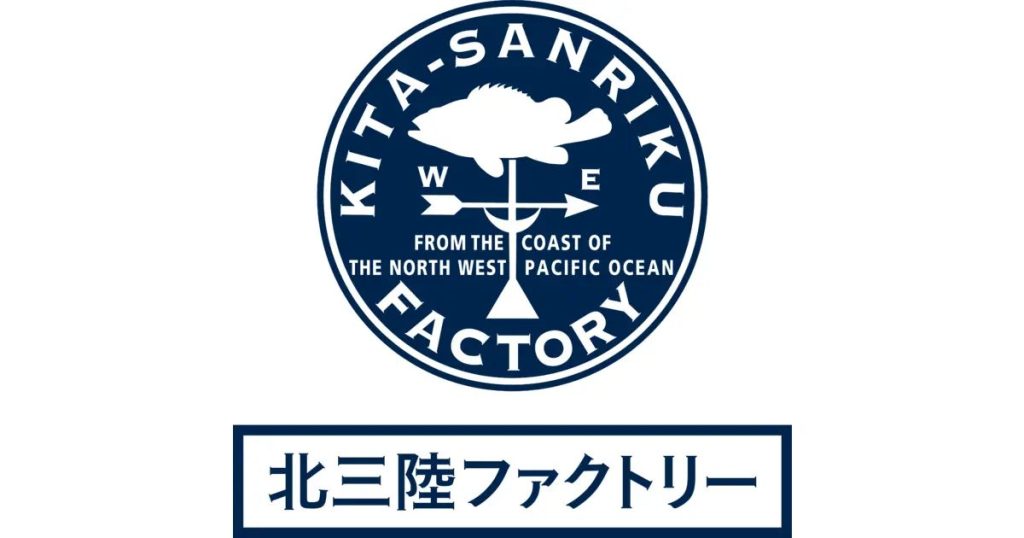
Kita-Sanriku Factory is a leading company developing high-quality sea urchin brands in the town of Hirono, Iwate Prefecture, home to the world’s only “Sea Urchin Farm ®︎”. With the mission of “Enriching the world’s oceans from Kita Sanriku,” the company is leveraging its expertise in raising high-quality sea urchins to connect with the world through its new “sea urchin regenerative aquaculture system” technology and promote initiatives to create a sustainable future for the marine industry. We established an Australian corporation in 2023 and are expanding our business both domestically and internationally.



